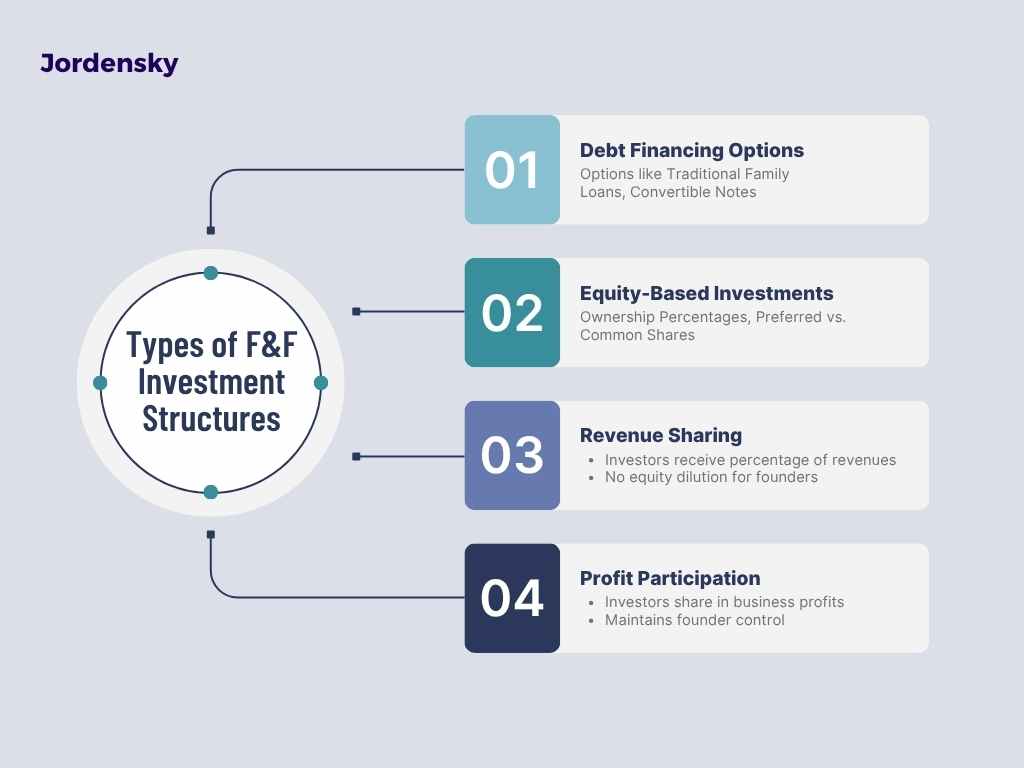Learn how to raise funds from friends and family in India. Expert guide covering valuation, legal compliance, and proven strategies

Did you know that 38% of Indian startups begin their journey with friends and family funding, yet many struggle to structure these deals properly? When Ritesh Agarwal started OYO Rooms in 2013, his first investment came from his family – a modest sum that would eventually grow into India's largest hospitality chain. This story isn't unique; countless Indian entrepreneurs have turned their personal networks into business goldmines.
Raising funds from friends and family (F&F) represents the most accessible entry point into the startup ecosystem. Unlike the rigorous due diligence processes of angel investors or venture capitalists, F&F rounds leverage existing relationships and trust. However, this apparent simplicity often masks critical challenges that can strain relationships and derail promising ventures.
In India's relationship-driven business culture, F&F funding carries unique advantages and responsibilities. The cultural emphasis on family support, combined with the growing startup ecosystem, creates unprecedented opportunities for entrepreneurs willing to approach these relationships professionally. Yet, many founders make costly mistakes by treating these investments too casually, leading to legal complications, damaged relationships, and missed growth opportunities.
Friends and family rounds are a type of fundraising that occurs during the earliest stages of a startup's lifecycle usually at pre-revenue stage. These investment rounds typically range from ₹5 lakhs to ₹50 lakhs in the Indian context, though amounts can vary significantly based on the founder's network and business requirements.
Unlike institutional investors who focus primarily on financial returns, friends and family investors are motivated by a combination of factors:
This emotional component creates both opportunities and challenges. While it makes capital more accessible, it also requires careful management to preserve relationships.
India's collectivist culture provides unique advantages for F&F fundraising. Raising funds from friends and family offers unique advantages in the Indian context because:
Consider the case of Byju Raveendran, who initially funded BYJU'S through personal savings and family support before it became India's most valuable edtech startup. His approach of starting small with trusted relationships laid the foundation for attracting larger institutional investments later.
F&F money is usually easier to get compared to institutional funding. The approval process is streamlined, often requiring just a compelling conversation rather than extensive documentation. This accessibility is particularly valuable for:
F&F rounds offer unprecedented flexibility in structuring deals. Common arrangements include:
This flexibility allows founders to craft win-win arrangements that suit both parties' risk tolerance and return expectations.
Beyond capital, F&F investors often provide invaluable support through:
Arriving prepared for the time when you will request funds from friends requires systematic planning and professional presentation. Despite the informal nature of these relationships, treating the fundraising process professionally demonstrates respect and increases success probability.
A compelling business plan forms the foundation of successful F&F fundraising. Key components include:
Market Analysis for Indian Markets:
Financial Projections and Revenue Models:
Risk Assessment and Mitigation Strategies:
Valuation represents one of the most challenging aspects of F&F fundraising. Early-stage startups lack historical financial data, making traditional valuation methods inadequate. Consider these approaches:
Comparable Company Analysis: Research similar startups in your industry and stage. While perfect comparisons are rare, this provides a reference point for discussions.
Future Value Estimation: Project potential future valuations based on growth assumptions, then work backward to determine current value.
Asset-Based Valuation: For businesses with tangible assets, consider the value of equipment, inventory, and intellectual property.
Negotiation-Based Approach: Often, F&F valuations result from negotiations that balance founder equity preservation with investor return expectations.
Operating within India's regulatory framework is crucial for F&F fundraising success. Key considerations include:
SEBI Regulations:
Companies Act Compliance:
FEMA Compliance:

Debt financing, joint ventures and licensing deals represent traditional approaches to F&F funding. Debt structures include:
Traditional Family Loans:
Convertible Notes:
Equity investments offer F&F investors ownership stakes in exchange for capital. Considerations include:
Ownership Percentages:
Preferred vs. Common Shares:
Creative structuring can address unique family dynamics:
Revenue Sharing Agreements:
Profit Participation Models:
Successful F&F fundraising requires balancing personal relationships with business professionalism. Friends and Family funding rounds have a particular emphasis on being FAIR, which means:
F - Formal Documentation: Even close relationships require proper documentation. Investment agreements should clearly outline:
A - Aligned Expectations: Ensure all parties understand the risks and potential returns. Regular communication prevents misunderstandings and maintains trust.
I - Inclusive Communication: Keep all investors informed equally. Avoid favoritism that could damage relationships.
R - Respectful Treatment: Treat F&F investors with the same professionalism as institutional investors. Their trust deserves respect.
Provide your friends and family with a summary of the business that demonstrates your commitment to transparency and professionalism. This summary should include:
Proper documentation protects all parties and prevents future disputes. Essential documents include:
Investment Agreements:
Shareholder Agreements:
Board Resolutions:
Have an understanding of what type of deal you seek before approaching potential investors. This clarity helps structure conversations and negotiations effectively.
Investment Amount Requirements:
Valuation Expectations:
Investor Involvement Levels:
Maintaining strong relationships with F&F investors requires consistent communication:
Regular Updates:
Milestone Celebrations:
Challenge Communication:
Raising money from F&F has some obvious advantages, but it also creates unique challenges:
Mixing Business and Personal Relationships:
Managing Expectations:
Handling Failure:
Common legal pitfalls include:
Inadequate Documentation:
Regulatory Violations:
Zomato's Early Days: Deepinder Goyal and Pankaj Chaddah initially funded Zomato through personal savings and small amounts from friends. Their systematic approach to F&F fundraising, including proper documentation and regular communication, helped them transition successfully to institutional funding.
Nykaa's Foundation: Falguni Nayar leveraged her extensive network of friends and former colleagues to fund Nykaa's early stages. Her professional approach to F&F fundraising, treating every investor with respect and transparency, created a strong foundation for future growth.
These success stories highlight common themes:
Friends and family investors are a form of crowdfunding that works well for early stages but has limitations for scaling businesses. Consider transitioning when:
F&F rounds should position startups for future institutional funding:
Clean Cap Table:
Financial Systems:
Governance Structure:
Understanding Indian regulations is crucial for F&F fundraising:
SEBI Private Placement Rules:
Companies Act Requirements:
F&F fundraising has significant tax implications:
For Investors:
For Companies:
Raising funds from friends and family represents a powerful tool for Indian entrepreneurs willing to approach these relationships professionally. The key to success lies in balancing personal relationships with business professionalism, ensuring proper documentation, and maintaining transparent communication throughout the journey.
The Indian startup ecosystem's growth has created unprecedented opportunities for F&F fundraising. Cultural advantages, combined with professional best practices, can create strong foundations for scaling businesses. However, success requires careful planning, legal compliance, and respect for all stakeholders.
Remember that F&F funding is not just about raising capital – it's about building a foundation for long-term success. The relationships you nurture and the systems you establish during this phase will serve you throughout your entrepreneurial journey.
Transform your business idea into reality with our comprehensive F&F fundraising toolkit. Contact Us to Download our CFO Service package including:
✅ Investment Agreement Templates (India-specific)
✅ Pitch Deck Framework for F&F presentations
✅ Legal Compliance Checklist for Indian startups
✅ Financial Projection Templates and calculators
✅ Investor Communication Templates for ongoing relationships
Join over 2,000+ Indian entrepreneurs who have successfully raised funds from friends and family using our proven strategies. Start your fundraising journey today with confidence and clarity.